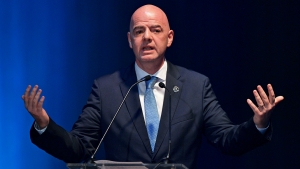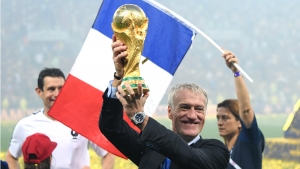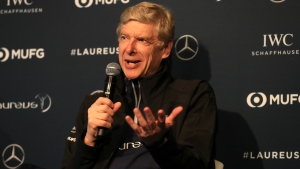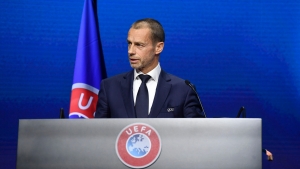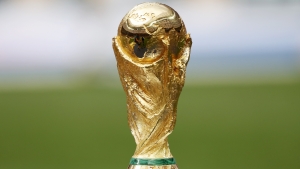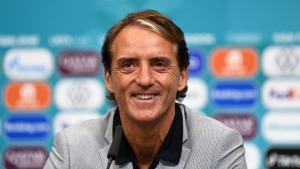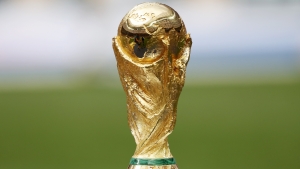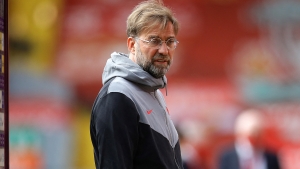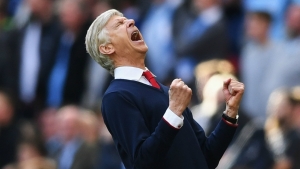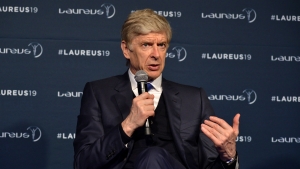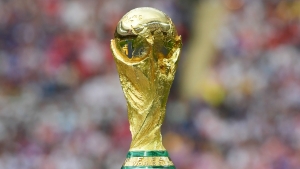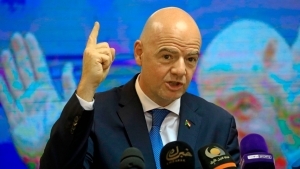Arsene Wenger claimed there has been a "very positive" response to proposals for the World Cup to be staged every two years – as UEFA warned that its members could boycott the tournament.
The former Arsenal manager has become the figurehead for FIFA's mission to change the landscape of the world game, in plans that have been derided by UEFA and Europe's top leagues.
Wenger, 71, is FIFA's chief of global football development, and he has been at the forefront of promoting an idea that Saudi Arabia proposed to FIFA in May.
Frenchman Wenger said it would need to be a "democratic" decision by FIFA's members if global football's most important tournament is to shift from its current format, whereby it takes place every four years.
UEFA president Aleksander Ceferin told The Times: "We can decide not to play in it. As far as I know, the South Americans are on the same page. So good luck with a World Cup like that. I think it will never happen as it is so much against the basic principles of football. To play every summer a one-month tournament, for the players it's a killer."
Wenger sees it a different way, claiming the theory that players would be overworked is a misnomer as he argued they would be in demand for another tournament if they are not required for the World Cup.
Speaking in footage shown by Sky Sports News on Thursday, Wenger said: "Overall, I think I have got a very positive response, but this decision is a democratic decision and will be made certainly by the 211 countries that are affiliated with FIFA.
"We continue to consult people and that's an ongoing process that will happen until December. After that it's down to all the federations to decide what will happen."
Wenger is backing a restructuring of the professional game that would see one or two extended international breaks during the domestic season, to allow for national teams to play a large tranche of fixtures rather than have various breaks spread across the year. He sees that, and the World Cup plan, as offering a prospect that would benefit football.
"I believe if I was inside the club I would sign with two hands for that programme. It would give me time with the players, to get their focus on what is important for the club," Wenger said.
"Overall I would say a better situation between club and national team football would improve the quality of the concentration on both sides. If we create room and we do not play big competitions, you will play small competitions.
"Don't think you will not play. The target of the players and football to improve all over the world is to play top-level competitions.
"After that I'm not hesitant at all, I'm 100 per cent convinced that what I propose is the right solution for the modern way to organise football."
FIFA's plan applies to men's and women's World Cups, but the men's tournament is overwhelmingly the world governing body's biggest provider of revenue.
A host of star former players from FIFA's 'Legends' programme have gathered in Doha, Qatar, this week to hear Wenger explain the plans, with Brazil great Ronaldo among them, giving the expansion his support.
There has been scorn for FIFA's plans from outside football, with World Athletics president Sebastian Coe concerned about the impact on the Olympic Games.
Coe, who is a member of the International Olympic Committee, told The Guardian: "I can see no good reason for it. There may be vested interests here but the summer sports are protective about the landscape as it's hard enough for them as it is to grab space in the traditional or digital media.
"A biennial World Cup will inevitably start clashing with the Olympic Games too.
"I'm a big football fan, but I fear that you’re going to put a lot of players under some big physical stress. The clubs and leagues are all opposed to it. And my gut instinct is that you can keep cramming stuff into the calendar if you really want to, but less is more sometimes."
The Premier League was among a group of major European leagues that declared this week they are "firmly and unanimously" against FIFA's proposals.
The men's World Cup has taken place every four years since the inaugural edition in 1930, aside from 1942 and 1946 due to the Second World War, while the women's World Cup has followed suit since it was first staged in 1991.
The 2022 World Cup will take place in Qatar.
























